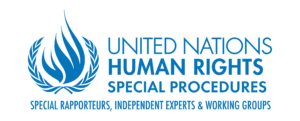On Wednesday 13 September a letter by the Ministry of Foreign and European Affairs caused widespread furore within the cultural community of France. In the wake of the crisis between France and the three Sahelian countries the letter called for an immediate halt to all projects involving nationals from Mali, Niger and Burkina Faso. Subsidized cultural establishments would have to “suspend, until further notice, all cooperation…without delay, and without exception.” The letter further states: “All financial support must also be suspended, including via French structures such as associations… Similarly, no invitations should be extended to any nationals of these countries. Students with valid visas and flight tickets are already denied entry to France.
The National Syndicate for Artistic and Cultural Enterprises union (SYNDEAC) released a statement saying that the radical measures represented the intrusive influence of politics in cultural programming and a dent in France’s policy of international artistic solidarity – in particular a damaging blow to the 2005 UNESCO Convention “on the protection and promotion of the diversity of cultural expressions”.
In response to the protests, French Cultural Minister Rima Abdul-Malak declared “We never boycott artists from anywhere.” She added that the measures are not a shift in policy but an adaptation to an extremely deteriorated security context. They will only affect new projects hat would require travel visas for artists.
51 arts organisations signed a press release on 19 September calling for a space for dialogue and inter-ministerial work with the Ministry of Europe and Foreign Affairs, the Ministry of Culture and the Ministry of the Interior and Overseas: “We reaffirm that these obstacles to the mobility of artists and cultural actors from these countries cannot be based on the closure of embassies and the absence of a team on the spot: we recall that the issuance of visas can be done without the presence of a local embassy and that solutions exist.”
Public discussion: “Artists from Mali, Niger, Burkina Faso without visas: exceptional situation or systemic problem?” Wednesday 11 October at 10.30 am on the Elysée Montmartre workshop (Paris).
At the regional level, political influence has been increasing for quite some time. Earlier this year, in March, the Auvergne-Rhône-Alpes region adopted a “Charter for the defense of French values and secularism” by 152 votes to 32. The charter covers a wide range of concepts, from freedom and secularism to “anti-corruption policies”. It aims to fight “in particular against religious fundamentalism such as Islamism”, against “the so-called inclusive scripture” and against “Anglicism”. Associations and foundations could have their regional subsidies withdrawn if they violate the “republican commitment contract”.
Sources: France 3, Zone Franche, euronews.culture
